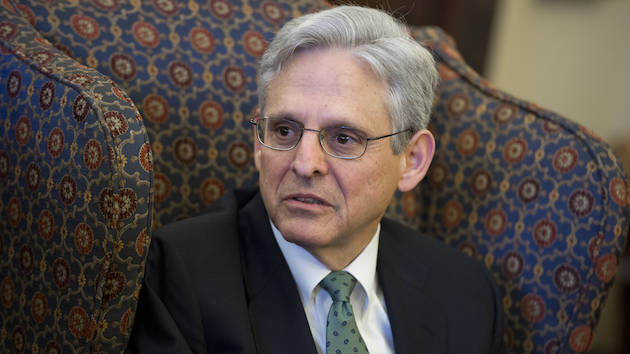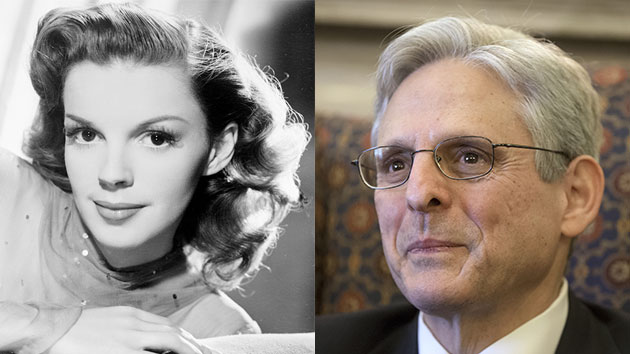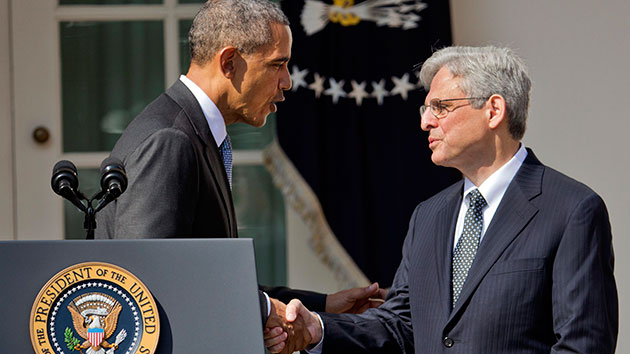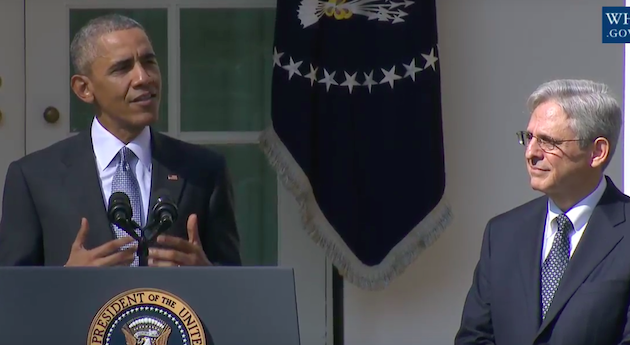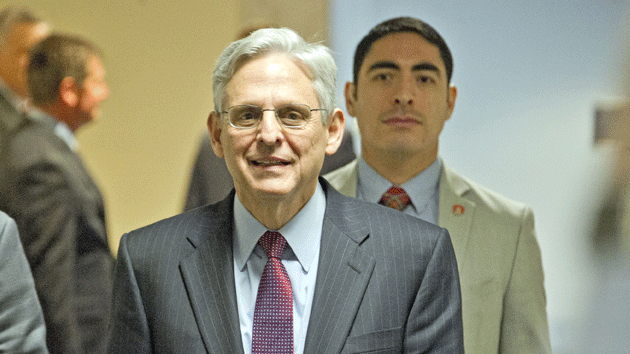
US Supreme Court nominee Merrick GarlandRex Features/via AP Images
Since President Barack Obama nominated Merrick Garland to serve on the Supreme Court, Republicans and conservative activists have struggled mightily to find any scrap of evidence suggesting that the chief of the DC Circuit Court of Appeals isn’t qualified for the job. Conservative groups have hired teams of opposition researchers to rifle through Garland’s past. But the dirt-diggers—and most media outlets, too—are coming up dry.
What reporters and opponents alike have discovered is that Garland, who has been considered for a Supreme Court slot before and has already been confirmed by the Senate to his current position, appears to be a model citizen with a fairly conservative record. He’s not the liberal ideologue his conservative critics have claimed.
So opponents have had to campaign against Garland on the thinnest of grievances: That he briefly worked on the failed campaigns of Democratic presidential candidates Walter Mondale and Michael Dukakis; that he advised some members of Congress who supported the Equal Rights Amendment, a failed measure that would have enshrined equal rights for women in the Constitution; and that he’s been too friendly to unions and not friendly enough to gun owners. Lacking any better material, critics have tried to hype other issues that are actually thin gruel. Here’s some of what the Garland-bashers have been able to come up with so far:
He once admired a Supreme Court justice: In 2005, Garland spoke at a gathering celebrating a new book on the late Justice Harry Blackmun by veteran New York Times Supreme Court reporter Linda Greenhouse. During his speech, Garland called the release of Blackmun’s papers—on which Greenhouse had drawn heavily—”a great gift to the country.” Blackmun was the author of the Roe v. Wade decision, and conservatives seized on Garland’s comments as evidence of his supposed pro-choice leanings. Anti-abortion group Americans United for Life circulated his remarks in a press release urging the Senate to block Garland’s nomination. “Judge Merrick Garland is President Obama’s pro-abortion pick to tempt some Republicans to act now to fill the vacancy on the Supreme Court,” Clarke Forsythe, the group’s acting president, said.
He referred to Benghazi: Recently Judicial Watch, a conservative nonprofit group that frequently files Freedom of Information Act requests for government records, blasted out a press release headlined “Obama SCOTUS Pick Cited Benghazi Video Lie as Fact in JW Court Hearing.” The press release explained that in January 2013, Garland was a member of a three-judge panel that heard Judicial Watch’s appeal after the Obama administration, on national security grounds, rebuffed the group’s efforts to obtain dozens of photographs of Osama bin Laden’s corpse. During the case, Garland brought up an anti-Islam YouTube video, “Innocence of Muslims,” that the Obama administration had originally pointed to as a cause of the attack on the Benghazi consulate that killed Ambassador Chris Stevens. Garland wondered whether the release of the bin Laden photos might provoke similar violence.
Administration officials, Garland said, are “telling us this could result in death, not just release of secret information, but death. And we do know of examples where in this country we would think that the release of certain things would not have lead to this, and yet there were—not very long ago a video was released that did lead to death of an American ambassador, of other people, of riots in other cities. When the government tells us that this is likely to lead to death, isn’t that even more, something we should defer to even more than when they say, ‘Well, this is going to lead to, you know, the release of some secret information?'”
Based on Judicial Watch’s press release, the conservative Daily Caller published an article claiming that Garland had “falsely blamed” the video for the attacks, implying that Garland was promoting the Obama administration’s supposed Benghazi cover-up. Yet, as the New York Times has reported, one of the ringleaders of the Benghazi attack “told fellow Islamist fighters and others that the assault was retaliation for the same insulting video.”
He insufficiently supported the military: According to a recent story in the Boston Globe, when Garland was a student at Harvard in 1973, a radical lefty student group was pressing the college to let students vote on whether the school should continue the campus ban on ROTC recruiting that had been imposed in 1969 amid anti-Vietnam War protests. There had been rumors that the school was considering letting the military return to campus. Garland, a student leader at the time, supported the idea of holding a referendum on whether to lift the ban. He then voted against the referendum after school administrators reassured students that there was no move afoot to lift the ROTC ban. This non-event, the Globe concluded, “could give Senate Republicans opposing his nomination to the high court ammunition to say he did not sufficiently defend the US military in the face of left-wing activists.” As far as ammo goes, this is low caliber.
Middle school track cheater: Recently, the Chicago Tribune ran a first-person story from Fred Eisenhammer, Garland’s former classmate at Lincoln Hall Junior High School, which included an anecdote about competing against Garland in a relay race at summer camp. Eisenhammer recounts that he was gaining on Garland when “an unusual thing happened. Merrick cut to the left in front of me before veering back on course. I staggered to avoid crashing into him but righted myself and kept running. I lost a few yards in the confrontation and then, with pumped-up adrenaline, set sail again to overtake him. I never did.”
Eisenhammer’s team lost the race, even after protesting to the grownups that Garland had cheated. Now that Garland has been nominated to the Supreme Court, Eisenhammer is still wondering whether that swerve was intentional—”or does he just know how to win?” Eisenhammer claims that all these years later, the race doesn’t really matter. But he has a warning to share with the rest of the country: “That relay race taught me a lesson about Merrick Garland…Cross his path, and you’ll come out second best.”
This must explain why Senate Republicans are refusing to give him a confirmation hearing.

